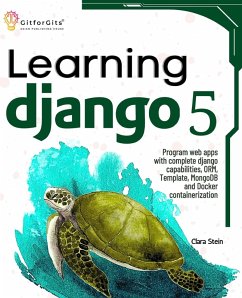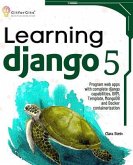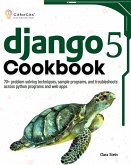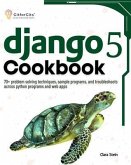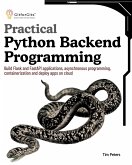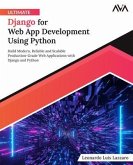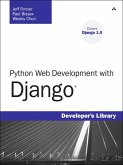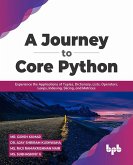Beginning with a thorough introduction to Django 5, you'll learn how to install and configure Django on a Linux server, set up virtual environments, and create your first Django project, BookTech. The book walks you through the fundamentals of Django models and ORM, teaching you how to define models, perform database migrations, and interact with the ORM to optimize data querying. You will learn about Django views, including function-based and class-based views, URL mapping, and form handling. The templates section will show you how to create and inherit templates, use template filters, and pass data to templates for dynamic rendering.
Advanced topics are thoroughly covered, including user authentication, permission management, and extending the default user model. The book then goes over deployment and scaling, teaching you how to containerize your application with Docker, deploy to cloud platforms like AWS, and set up continuous integration and deployment pipelines in Jenkins. You will learn how to maintain and monitor your application with tools such as Amazon CloudWatch, New Relic, and Sentry, ensuring that it runs smoothly in production
Dieser Download kann aus rechtlichen Gründen nur mit Rechnungsadresse in A, B, CY, CZ, D, DK, EW, E, FIN, F, GR, H, IRL, I, LT, L, LR, M, NL, PL, P, R, S, SLO, SK ausgeliefert werden.

